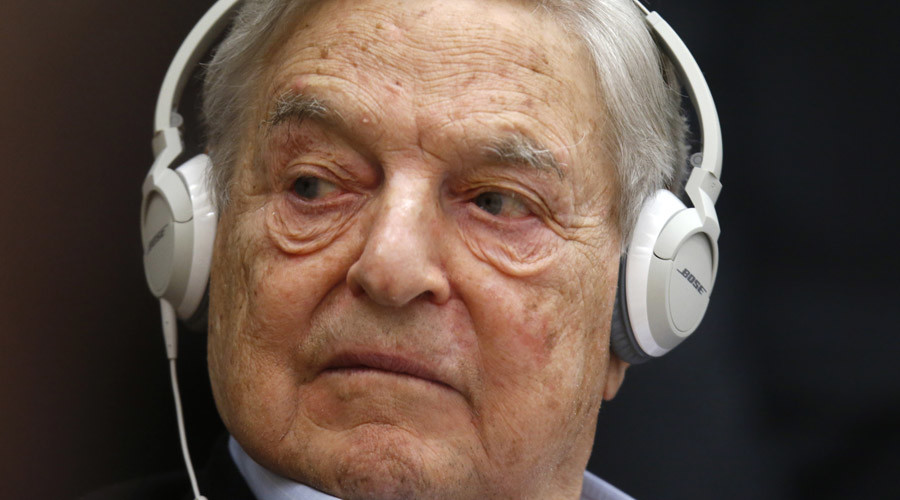

This "peaceful" transition appears to be anything but peaceful; the exiting president continues to make decisions that will impair the effectiveness of the future Commander in Chief and my friends in the left; so diligent to vent outrage even if Mr Trump kills a bee, do nothing but showing a knowingly smile. Last week Mr Obama, after a period of yet another secret negotiations with his newfound buddy, Raul Castro, (remember the hug attempt in Havana after the press conference) decided to end effective immediately the wet foot, dry foot law of 1995. I have often said publicly that our country, the United States of America, has every right to regulate who enters and who stays out. My point instead goes to the timing and the history of how we got here.
Every nation has its way of paying for its mistakes; thus, Spain recently granted citizenship to millions of Latin Americans, Italy has more flexible laws for nationals of Ethiopia, Eritrea and other countries affected by Mussolini's clownish attempt to revive the Roman Empire in World Wat Two. Native Americans, the few remaining, were granted some privileges so that the rest of us can live with ourselves. In some quarters there is even talk about reparation for African Americans. It was therefore only logical and fair that a huge mistake made by a good president (Dwight Eisenhower) i.e. forcing Fulgencio Batista out of Cuba and allowing Castro to take power and impose a brutal totalitarian regime that still keeps the island hostage, be somewhat repaired by allowing the Cuban nationals some immigration exceptions the culmination of which was the Cuban Adjustment Act of 1966.
It wasn't always easy; different waves of Cuban exiles underwent different legal limitations and while his detractors claim Don Jorge Mas Canosa was responsible for pressing Clinton pass the "unfair wet foot, dry foot" I see it as the best the late Cuban American leader could get. Despite its irregular and almost fate based nature, it was better than nothing; let us not forget that up until the downing of two civil aircrafts in international waters by the Cuban Air Force Mr Clinton seemed favorable to lifting the embargo and normalizing relations with the Havana regime. Be that as it may, Cubans had it much easier that any other nationality when it came to legalizing their status in the US.
On the dark side, thousands of Cuban abused the generosity of the American people and used their privileges to, in a way, enjoy the best of both worlds. A wide gap (ideological and generational) was created between those arrived decades ago and the recent wave of economic immigrants that came only to have a better life and eventually fly back to their native island as often as possible to show off their alleged success. The recalcitrant faction had to choose, the younger "exiles" had their cake and ate it too. Said difference inevitably caused friction not only between the old and the new among the Cubans, but also a growing resentment within the Latin American community that with a mixture of envy and fair frustration saw the Cubans live "la vida loca" while they had to remain in the shadows. Also, the law incentivized hundreds of thousands to risk their lives in makeshift rafts most of which wouldn't make it in a bathtub, let alone the 90 miles between Cuba and US soil. But doesn't the existence of sanctuary cities; so cool in most liberal quarters, incentivize Mexicans and other Latin Americans to cross the border illegally and risk rape and murder by the "coyotes"; why the double standard ?
If an average American, unaware of the long journey and the vicissitudes endured by our community looks at the situation he or she is likely to agree with Obama's decision and even consider it humanitarian in some respect. Not knowing the path that led us here an imparcial human being cannot fail to applaud anything that reduces the risk of people drowning in the ocean and as Cuban Americans it is our patriotic duty to shed light on this issue; to tone down the rhetoric and to dissect the intricacies of our narrative in order to match Joe's and Jane's limited knowledge of, and interest in, the issue.
To make matters worse, the ever supportive segment of Mr Obama within the Cuban American community now pulls the excuse of Senator Rubio and Representative Curbelo previous attempts to change the Cuban Adjustment Act in light of the piñata that many Cubans had made of said law. Some even claim Trump wanted to derogate the law himself and the incumbent only made his job easier. Let's go over each point with a fine tooth comb:
1- The risk taken by so many Cubans fleeing the island in rafts is nothing our president learned about last week; it has always been there and has always been the weakest part of the law to which the Cuban Americans have held on fast in lieu of a better alternative. Eliminating the law just hours from leaving the White House is an outrageous act of cheap politicking and unscrupulous judgement that once again proves the president is closer to the regime than he is to us.
2- Senator Rubio and Congressman Curbelo, at least judging by their statements, claim to have foreseen a favorable environment in Congress to lift the embargo and kill the Act; therefore, according to their reasoning, they wanted to make sure the violations of the act and the ambiguity that have come to reign did not become the target of Congress nor jeopardize the entire Act all together. I can't speak for them, but I'm positive that even if they had succeeded in derogating the dry foot, wet foot law, there would have been an announcement and a deadline instead of this chaotic and criminally provoked stranding of Cubans in the Straits of Florida; effective immediately only underscores how evil, vindictive and petty the left can be. It wouldn't even surprise me if this degree of harshness is payback for our vote favoring Trump.
3- Whether Trump wanted to do the same and Obama beat him to it is anybody's guess. It is unlikely though that the incoming president had applied such expeditiousness to his decision.
4- I continue to firmly believe the normalization of relations with the regime is part of a geopolitical gambit dictated by the highest echelon of power in America betting on a soft landing in the neighboring island rather than a collapse of the aging regime. For decades, the rafts and the makeshift boats have been a valve to ease pressure whenever the regime perceived its system had overheated; closing this valve could trigger a crash landing. Would this be an instance when the president goes against the powers that be?
5- The younger generations of Cuban Americans must realize that regardless of its sometimes virulent and extreme positions the old guard is their only and should I say natural ally; the left uses them for electoral purposes or to advance their dark agenda on Cuba but tosses them without hesitation once their objectives have been reached. I see a lot of praising for Obama and unfair and excessive criticism of our elderly. I'll sit and wait until some of these critics helplessly see their relatives kicked back to Cuba.
6- In an attempt to justify everything coming from Camp Obama some argue that announcing a deadline for the application of the new reality would have triggered an avalanche similar to that of the Mariel boatlift of 1980; well I would have appreciated if the same zealousness and secrecy had been used to withdraw from Iraq.
Mr Trump seems to be in for a bumpy start; partly due to his thin skin and irascible temperament, but largely because of the complex situation he will encounter since day one; last November elections rejected Obama's legacy; time will tell if history emulates the electorate.


